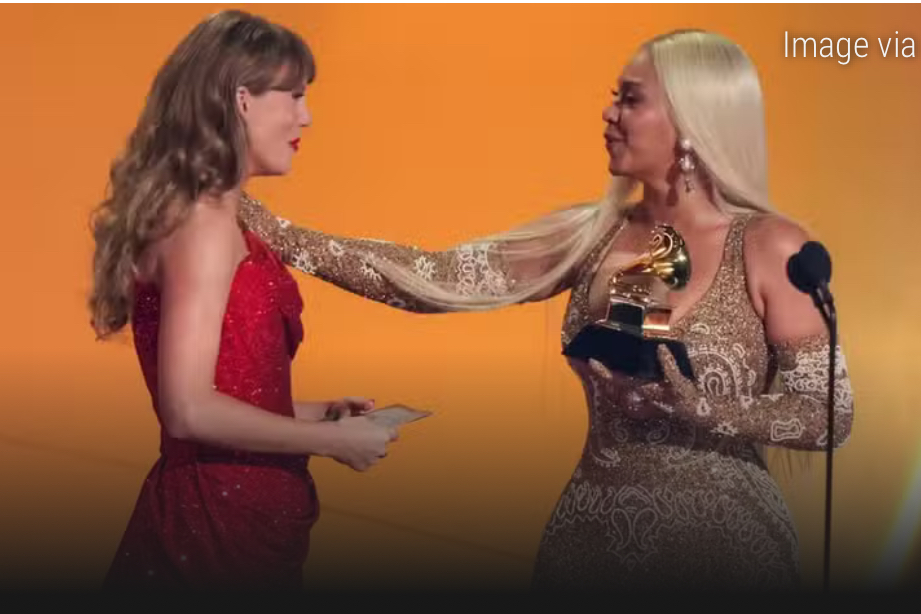NFL
“Beyoncé’s Calculated Persona and Swift’s Predictable Melodrama Ensure Their ‘All-Star Legends’ Roster Will Be Forgotten by Next Year”

In an era where music’s cultural weight is measured in streams and stan wars, the announcement of Beyoncé and Taylor Swift leading a so-called “All-Star Roster of Music Legends” feels less like a bold artistic venture and more like a desperate bid to cement their relevance. Touted as a gathering of the industry’s elite, this project—whether a collaborative album, concert series, or curated collective—promises to redefine music’s future.
Instead, it’s poised to collapse under the weight of Beyoncé’s meticulously crafted facade and Swift’s repetitive emotional theatrics, ensuring its legacy will fade faster than a TikTok trend.
Beyoncé: The Queen of Control, Not Creativity
Beyoncé’s inclusion as a co-leader of this roster is a triumph of branding over substance. For decades, she’s built an empire on flawless visuals, choreographed empowerment anthems, and a carefully curated image that leaves no room for vulnerability or spontaneity. Albums like Lemonade (2016) and Cowboy Carter (2024) are hailed as cultural touchstones, but their impact relies heavily on cinematic visuals and narrative framing rather than musical innovation. Strip away the high-budget videos, and you’re left with polished but predictable pop-R&B tracks that lean on guest artists and producers to carry the weight. Her vocal acrobatics, while technically impressive, often feel like a showcase of skill over soul, prioritizing spectacle over storytelling.
Her leadership in this roster is a red flag. Beyoncé’s history—whether steamrolling Destiny’s Child or dominating joint projects with Jay-Z—suggests a control freak who demands every note align with her vision. This rigidity risks stifling the creativity of any roster, turning potential collaborators into mere props in her ongoing self-mythologizing. Her selective activism further undermines her credibility: she’ll profit off Black empowerment themes in Formation or her Ivy Park line but stays silent on less marketable issues, revealing a calculated persona that picks causes for clout, not conviction. Can such a figure inspire a collective of “legends,” or will she simply mold them into extensions of her brand?
Taylor Swift: The Eternal Victim in Search of a New Script
If Beyoncé is calculated, Taylor Swift is maddeningly predictable. Her brand of confessional pop thrives on relatability, but by 2025, it’s a tired act. Albums like The Tortured Poets Department (2024) double down on her signature formula: verbose, diary-entry lyrics about heartbreak and betrayal, draped in safe synth-pop or acoustic strums. What was once charmingly raw in Speak Now (2010) now feels like self-parody, as she mines the same personal dramas for diminishing returns. Her songwriting, once praised for its storytelling, now drowns in overwrought metaphors and self-referential whining, alienating listeners who crave innovation over introspection.
Swift’s leadership in this roster is equally suspect. Her public persona—built on feuds with Kanye West, Scooter Braun, and anyone who dares critique her—casts her as a perpetual victim, rallying her rabid Swiftie fanbase to weaponize her narratives. This divisiveness hardly screams “unifying leader.” Her environmental hypocrisy, with private jet emissions clocking thousands of tons of CO2 annually, clashes with her progressive posturing, making her an awkward fit for a project meant to inspire. In a roster of supposed legends, Swift risks turning collaborations into fodder for her next breakup song, dragging the group down with her melodrama.
A Roster Doomed by Ego and Hype
Together, Beyoncé and Swift are a mismatched disaster. Beyoncé’s perfectionism will likely clash with Swift’s need to center her personal narrative, creating a tug-of-war that leaves little room for other voices. Their fanbases, notoriously territorial, are already priming for online battles, turning what should be a celebration of music into a popularity contest. And who’s on this roster? If it’s the usual chart-toppers—Drake, Billie Eilish, Post Malone—it’s less a gathering of legends and more a Spotify playlist with extra steps. True legends like Aretha Franklin or David Bowie reshaped music’s DNA; this roster feels like a corporate playlist, curated for streams, not staying power.
Cultural Impact: Fleeting, Not Enduring
The cultural footprint of this project is likely to be as ephemeral as a viral hashtag. Beyoncé’s moments—like her Coachella performance or Black Is King—are bold but feel like calculated bids for relevance, not organic evolution. Swift’s re-recorded albums and endless Easter eggs are savvy but opportunistic, prioritizing brand loyalty over artistic risk. Both artists dominate charts and headlines, but their influence is tied to algorithms and social media cycles, not the timeless innovation of true legends. This roster, built on their combined weaknesses, risks producing a soulless product that prioritizes metrics over meaning.
The Verdict: A Forgettable Footnote
The “All-Star Roster of Music Legends” led by Beyoncé and Taylor Swift is a masterclass in missed opportunities. Their calculated personas and predictable melodrama ensure this project will be less a cultural milestone and more a fleeting spectacle, forgotten by next year’s award season. Music deserves leaders who push boundaries, not egos who polish their crowns. For now, this roster is just another overhyped venture in a landscape littered with them.
LISPRINCE












